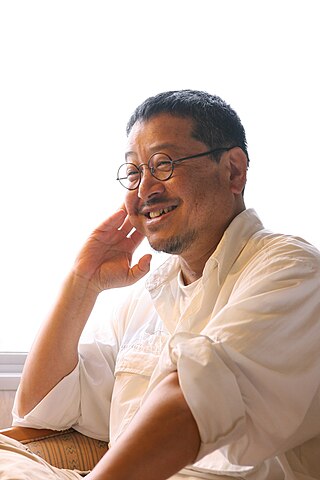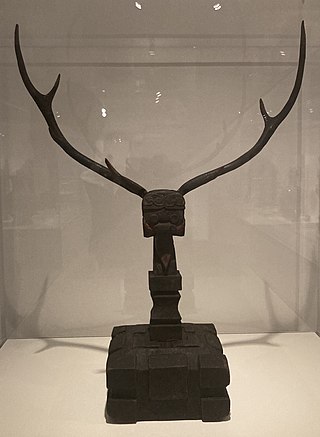Related Research Articles
Emperor Yizong of Western Xia (1047–1068), sinicized name Li Liangzuo, was the second emperor of the Western Xia dynasty of China, reigning from 1048 to 1067. Yizong was also known by his Tangut name Ningling Liangcha (寧令兩岔). "Ningling" was his Tangut title, which meant "Grand Prince", while "Liangcha" (兩岔) was his personal name.

Shek Wing-cheung, better known by his stage name Shih Kien, Sek Kin, or Sek Gin or Shek Kin(Chinese: 石堅; pinyin: Shí Jiān; Jyutping: Sek6 Gin1), was a Hong Kong–based Chinese actor and martial artist. Shih is best known for playing antagonists and villains in several early Hong Kong wuxia and martial arts films that dated back to the black-and-white period, and is most familiar to Western audiences for his portrayal of the primary villain, Han, in the 1973 martial arts film Enter the Dragon, which starred Bruce Lee.

Walter Tso Tat-Wah was a film actor of Hong Kong, most famous for the roles he played in a number of Wuxia films in the 1950s and 1960s.

Romance of the Three Kingdoms is a Chinese television series adapted from the classical 14th century novel of the same title by Luo Guanzhong. The series was produced by China Central Television (CCTV) and was first aired on the network in 1994. It spanned a total of 84 episodes, each approximately 45 minutes long. One of the most expensive television series produced at the time, the project was completed over four years and involved over 400,000 cast and crew members, including divisions of the People's Liberation Army from the Beijing, Nanjing and Chengdu military regions. Some of the dialogues spoken by characters were adapted directly from the novel. Extensive battle scenes, such as the battles of Guandu, Red Cliffs and Xiaoting, were also live-acted.

Baku Yumemakura is a Japanese science fiction and adventure writer. His works have sold more than 20 million copies in Japan spread across more than 280 titles and adapted into a variety of formats including feature films, television shows, movies and comic books.

Stanley Fung Shui-fan is a Hong Kong actor and film director known for playing comedic roles. He was one of the Lucky Stars.

Mysterious Incredible Terminator is a 2008 Taiwanese television series starring Aaron Yan, Gui Gui, Alien Huang and Christine Fan. It was produced by Three Giant Productions (三匠影視有限公司).

Chinese folklore features a rich variety of ghosts, monsters, and other supernatural creatures. According to traditional beliefs a ghost is the spirit form of a person who has died. Ghosts are typically malevolent and will cause harm to the living if provoked. Many Chinese folk beliefs about ghosts have been adopted into the mythologies and folklore of neighboring East Asian cultures, notably Japan, Korea, and Vietnam. Beliefs about ghosts are closely associated with Chinese ancestor worship, where much have been incorporated into Buddhism and in turn influenced and created uniquely Chinese Buddhist beliefs about the supernatural.

Guifang was an ancient ethnonym for a northern people that fought against the Shang Dynasty. Chinese historical tradition used various names, at different periods, for northern tribes such as Guifang, Rong, Di, Xunyu, Xianyun, or Xiongnu peoples. This Chinese exonym combines gui and fang, a suffix referring to "non-Shang or enemy countries that existed in and beyond the borders of the Shang polity."
Phillip Ko-fei was a Hong Kong based actor, screenwriter and film director.
Miao Tien was a Chinese film actor mostly active in Hong Kong and Taiwan.
Balala the Fairies, or Balala, Little Magic Fairy, is a Chinese magical girl metaseries created and produced by Alpha Group. Each series focuses on a group of magical girls fighting against evil and dark forces while following their ordinary lives and personal wishes. The first installment was the live-action series of the same name, which first aired in 2008. There were five seasons in total and 52 episodes.

Sun Yueh was a Taiwanese actor.
Fung Hak-on was a Hong Kong actor. He appears in Hong Kong films since the 1960s until mid 2010s.

Ma Hsin-yeh was born in Pingyang County, Zhejiang Province, and enjoyed a notable career as a pioneering Chinese journalist, educator, publisher, government executive and diplomat. Ma was known as the "King of Journalism" (新聞王), and collectively with his native place compatriots Xie Xia-xun the "Chess King" and Su Bu-qing the "Math King", were known as the "Three Kings of Pingyang" (平陽三王). The Pingyang County Government has also officially named Ma as one of the top-ten most significant cultural-historical figures of the county. Ma adopted his penname Hsin-yeh as his personal name some time following his study abroad at the University of Missouri School of Journalism. The name incorporates the two characters for "stars" and "plain" from a line in the Tang dynasty poet Du Fu's poem Thoughts When Traveling at Night: "Stars hang low above the wide, flat plain, And up rides the moon as the mighty river flows on". Years later in 1984 when Ma was head of the Central News Agency, the School awarded him its highest honor, the Missouri Honor Medal for Distinguished Service in Journalism.
Huoxian Town is a town located on Tongzhou District, Beijing, China. It borders Xiji Town in its northeast, Anping Town in its east, Yongledian Town in its south, Yujiawu Hui Township in its southwest, and Zhangjiawan Town in its northwest. The 2020 Chinese census counted 68,466 residents for this town.

Tubo in Chinese mythology is the warden of Youdu, the capital of Hell. He is a vassal under Houtu, but some scholars also suggest that he was the primordial overlord of the Diyu.
References
- ↑ For a discussion of translations of Bierce, see Grenander, M. E., "Au cœur de la vie: a French translation of Ambrose Bierce", Boston University Studies in English, v. 1, n. 4 (Winter 1955-1956), pp. 237-241.
- ↑ For example, Jacques Sternberg's influential preface to Au Coeur de la Vie (Paris: Julliard, 1963), pp. i-xii; and Richard Schuberth's essay “Ambrose Bierce und das Worterbuch des Teufels” [“Ambrose Bierce and The Devil's Dictionary”] in Das neue Worterbuch des Teufels : Ein aphoristisches Lexikon mit zwei Essays zu Ambrose Bierce und Karl Kraus sowie aphoristischen Reflexionen zum Aphorismus selbst [The new Devil's Dictionary: An aphoristic lexicon with two essays about Ambrose Bierce and Karl Kraus and aphoristic reflections about the aphorism itself] (Vienna: Klever Verlag, 2014), pp. 167-174.